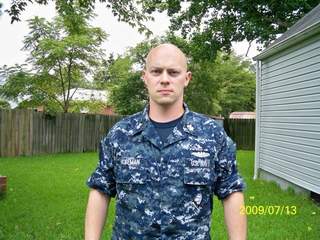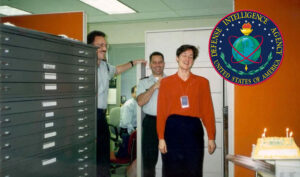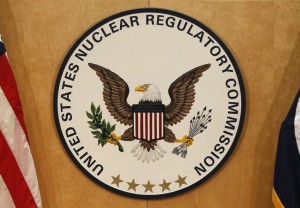
DOJ Press Release (10 Feb 14):
Former Sailor Sentenced to 30 Years in Prison for Attempted Espionage
Robert Patrick Hoffman II, 40, of Virginia Beach, Va., was sentenced today to serve 30 years in prison for attempting to commit espionage against the United States.
John P. Carlin, Acting Assistant Attorney General of the Justice Department’s National Security Division; Dana J. Boente, Acting United States Attorney for the Eastern District of Virginia; Charles T. May Jr., the Naval Criminal Investigative Service (NCIS) Acting Executive Assistant Director for Atlantic Operations; and Royce E. Curtin, Special Agent in Charge of the FBI’s Norfolk Field Office, made the announcement after sentencing by Senior United States District Judge Robert G. Doumar.
“By attempting to hand over some of America’s most closely held military secrets, Robert Hoffman put U.S. service members and this country at risk,” said Acting Assistant Attorney General Carlin.
“ Today, Mr. Hoffman is being held accountable for his actions. This prosecution should serve as a warning to others who would compromise our nation’s secrets. I commend the prosecutors, agents and analysts who worked diligently on this case.”
“Hoffman attempted to spy on behalf of the Russian Federation and betrayed the trust this country placed in him,” said Acting U.S. Attorney Boente.
“He was willing to place American lives at risk for personal gain.”
After a five day trial that concluded on Aug. 21, 2013, a Norfolk jury found Hoffman guilty of attempted espionage, as charged in the one-count superseding indictment filed on May 8, 2013.
According to court records and the evidence at trial, Hoffman is a U.S. citizen born in Buffalo, N.Y., who served for 20 years in the U.S. Navy until retiring at the rank of Petty Officer First Class on Nov. 1, 2011.
Hoffman’s rating in the Navy was as a Cryptologic Technician – Technical (CTT).
In that capacity, he worked aboard or in conjunction with U.S. submarines for much of his naval career.
While deployed, Hoffman operated electronic sensors and systems designed to collect data and information about potential adversaries, scanned the operating environment for threats to the submarine, and provided technical and tactical guidance to submarine commanders.
Due to these duties, Hoffman held security clearances and regularly received access to classified national defense information about U.S. submarines and their capabilities and equipment, about adversaries, about specific missions, and about U.S. military and naval intelligence.
As a condition of receiving access to this sensitive information, Hoffman repeatedly signed agreements not to disclose it to those unauthorized to receive it and regularly received training about his obligations to protect the information and to report without delay any suspicious contacts.
In 2012, the FBI initiated an investigation to determine if Hoffman was willing to act as an agent for a foreign government and commit espionage against the United States by divulging classified information.
As part of this investigation, undercover FBI agents posing as operatives of the Russian Federation contacted Hoffman seeking defense information.
In a series of responsive emails and other communications, Hoffman advised that he looked forward to “renewing [a] friendship” with his purported Russian contact, was “willing to develop a mutual trust,” and wanted compensation for his activities in the form of job assistance or payments based upon the risk and effort involved.
Hoffman also emphasized, however, that the need for “security [was] paramount” and suggested they communicate by physical, rather than unsecure electronic means.
In accordance with this request, undercover agents posed a series of questions to Hoffman and directed, if he chose to reply, that he should signal his willingness to do so by means of a coded reply and then leave his answers on a pre-arranged date in the hollow at the base of a tree at a dead drop site located in Virginia Beach, Va.
On three occasions in September and October 2012, Hoffman did just that and filled the drop site with encrypted thumb drives containing answers to the questions posed to him by persons he believed to be Russian agents.
In his answers, Hoffman supplied, among other things, national defense information classified at the levels of secret and top secret/sensitive compartmented information.
Following these disclosures, FBI and NCIS agents arrested Hoffman on Dec. 6, 2012, and the court ordered him detained.
This case was investigated by the FBI and NCIS. Assistant U.S. Attorneys Robert J. Krask and Alan M. Salsbury for the Eastern District of Virginia and Trial Attorney Heather M. Schmidt of the Counterespionage Section of the Justice Department’s National Security Division prosecuted the case on behalf of the United States.
Previous:
Robert Hoffman Espionage Trial (Updated)
Trial begins in Norfolk for ex-sailor accused of spying for Russians
Former Navy Sailor Charged in Virginia with Attempted Espionage (Updated)












You must be logged in to post a comment.